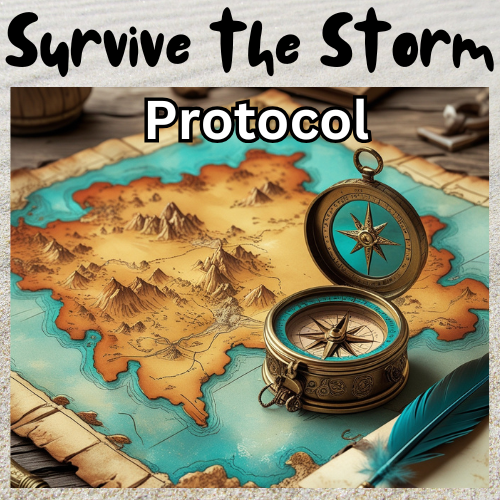12 Unconventional Communication Strategies That Work for Introverted Personalities
Introverts often get labelled as the “quiet ones,” the “deep thinkers,” the “observers” in a world that seems to worship those who can hold court in a room and sell ice to penguins. Introverts actually have a unique superpower when it comes to communication. They’re naturally perceptive, they listen (like, really listen), and they cut through distracting noise like a hot knife through butter.
So, why would an introvert—someone who already understands the art of subtlety and the value of silence—need to level up their communication game? Because even the most brilliant ideas fall flat if they’re not shared in a way that resonates. Whether you want to land that dream job, build authentic connections, or simply be heard without compromising who you are, learning to use your (few) words to the greatest effect can be a game-changer.
In this article, I’d like to look at the why and the how. I struggle with marketing, it’s counterintuitive for me as an introvert. Obviously, I want to become better at it, but without sacrificing who I am. Effective communication shouldn’t be about trying to be someone else; it should be about amplifying the strengths you already have—no forced small talk required.
Let’s start by looking at the “Why?”
Why Introverts may want to improve their Communication Skills
Introverts might want to improve their communication skills for a variety of personal and professional reasons. Strong communication skills can help introverts express themselves more confidently, form more meaningful connections, and feel more comfortable in social and work environments. More effective communication skills can:
- Enhance Your Career Opportunities: Communication skills are essential in most professional settings, from networking and interviewing to leading teams and presenting ideas. Introverts with strong communication skills are better equipped to showcase their talents and ideas, opening doors to new career possibilities. Introverts may want to improve their ability to communicate effectively to unlock new professional opportunities, raise their visibility, and build better relationships with colleagues and clients.
- Help You Build Stronger Relationships: Effective communication helps deepen connections with friends, family, and partners. For introverts, who may prefer smaller, more intimate settings, improving communication skills can lead to more fulfilling personal relationships, allowing them to express their thoughts and needs clearly and build trust. Stronger relationships also mean a stronger support system.
- Enable You to Express Your Needs and Boundaries: Introverts often benefit from time alone to recharge, but without clear communication, it can be challenging to convey these needs to others. Good communication skills make it easier to set time, space, and conditional boundaries that promote their well-being whether it’s at work, in social settings, or in personal relationships, ensuring their voices are heard and their interests respected.
- Increase Your Self-Confidence: Introverts sometimes feel anxious or uncertain in social situations, especially when they have to speak up in large groups. Improving communication skills can boost confidence in social interactions. Introverts who practice clear and calm communication often feel more empowered to engage in conversations and step out of their comfort zones without feeling drained.
- Emphasise Your Leadership Abilities: Even though introverts may not always gravitate toward leadership roles, many introverted leaders excel by using their reflective, empathetic, and thoughtful communication style. By improving communication, introverts can harness their unique strengths to lead by sharing insights, motivating teams, and inspiring others in ways that feel authentic to their natural style.
- Enhance Your Ability to Problem-Solving through Collaboration: Many work environments and projects require collaboration and teamwork. Introverts may need to speak up more often, share ideas, or offer feedback. Effective communication makes it easier to brainstorm, negotiate, and collaborate with others. For introverts, developing these skills can facilitate teamwork and problem-solving without unnecessary tension or discomfort.
- Make It Easier to Manage Conflict: Introverts may sometimes be perceived as withdrawn or disinterested when, in fact, they’re simply processing information. Improving communication skills can reduce these misunderstandings, allowing introverts to be more accurately understood and appreciated for who they are. Introverts may also find it challenging to address confrontations, but by strengthening their communication skills, they can navigate difficult conversations with greater calm and clarity, leading to more positive resolutions.
- Increase Your Influence and Impact: Good communication helps introverts make a stronger impact, whether in the workplace, community or in advocacy. By refining their communication skills, they can share their ideas, vision, and values more persuasively, thus having a greater influence on others.
- Help you Navigate Social Events with Ease: Many introverts find social gatherings draining, but strong communication skills can ease some of the anxiety around small talk and networking. Knowing how to approach conversations with confidence helps make social situations more manageable and enjoyable.
- Facilitate Expressing Your Creativity and Interests: Many introverts have deep passions, ideas, or creative projects they’d like to share. Good communication skills can make it easier for them to showcase their work, tell their story, or connect with an audience without feeling uncomfortable.
- Expand Your Comfort Zone: Improving communication skills can gently push introverts to engage more fully with the world around them. Gradually increasing their comfort with social interactions can lead to new friendships, professional relationships, and experiences they might otherwise avoid. Whether it’s attending events, joining a new group, or taking on a new role, improved communication makes it easier to participate in unfamiliar situations.
- Increase Your Emotional Resilience: Practicing communication skills, like setting boundaries or expressing thoughts assertively, can improve emotional resilience. Introverts who can communicate their needs effectively are often less stressed and better able to handle interpersonal challenges.
Enhancing our communication skills gives us the tools to share our strengths and unique perspectives with confidence and authenticity, enhancing both our personal and professional lives.
“You don’t have to transform yourself into an extrovert to succeed in life or work. As an introvert, what works for you on the job is going to be different from what works for an extrovert—and that’s okay. Give yourself permission to do things that play to your introvert strengths and needs. You can be dazzling in your own quiet way.”
― Jenn Granneman, The Secret Lives of Introverts: Inside Our Hidden World
Now that we are motivated to fine-tune our communications skills, let’s look at how we can do it.
12 Unconventional Ways that Introverts can use to Improve their Communication Skills
- Equine-Assisted Coaching: Working with horses helps introverts develop non-verbal communication and assertiveness. Horses respond to body language, energy, and intention, teaching people how to communicate confidently without words. This form of experiential learning can boost self-awareness and communication presence.
- Walking Meditation: Walking meditation can clear mental clutter and help introverts focus on the present moment. This clarity makes it easier to listen deeply and speak thoughtfully, which are key components of effective communication.
- Record Yourself Speaking: Try recording yourself discussing a topic or telling a story. Listening back can reveal your natural speaking patterns, pacing, and areas for improvement. It also helps reduce any anxiety about how you sound, making real conversations feel easier.
- Attend an Improv Class: Improv challenges introverts to respond spontaneously in social situations. This can increase comfort with uncertainty in conversations, teach flexibility in communication, and build confidence in thinking on their feet.
- Take a Digital Storytelling Course: Digital storytelling combines visuals with spoken or written narratives, which is a less direct but very creative form of communication. This exercise can help introverts explore their voice and storytelling style, boosting confidence and clarity in verbal communication.
- Shadow a Skilled Communicator: Observing a friend or mentor who communicates well in various settings can be incredibly helpful. Take note of their body language, phrasing, and interaction style, and try to integrate elements that resonate with you.
- Practice Video Chat Communication: Video calls provide a way to interact that’s less intense than face-to-face but more interactive than text. Using platforms like Zoom, try speaking on camera, recording a message, or even practising group calls to build ease in conversational settings.
- Start a Book Club or Discussion Group: If you enjoy reading, starting a book club gives you a structured way to practice expressing your thoughts. The group format is ideal for discussing ideas, voicing opinions, and practising active listening in a setting that’s enjoyable.
- Use Voice Messages Instead of Texts: Sending voice messages in place of text-based messages can bridge the gap between written and verbal communication. It allows you to practice speaking naturally without the immediate pressure of a live conversation.
- Engage in Structured Social Events: Look for activities like Toastmasters, networking games, or social mixers that provide prompts or themes for conversation. Having structured guidelines can take away the pressure of “small talk” and make it easier to express yourself in a group.
- Read Aloud to a Pet (or Horse!): Reading to animals allows you to practice vocal projection, pacing, and tone in a low-stress way. Horses, in particular, are sensitive to energy and tone, which can help you become more mindful of the non-verbal aspects of communication.
- Try Role-Playing Communication Scenarios: Whether with a friend, a coach, or even by yourself (in the mirror,) role-playing allows you to rehearse different conversational scenarios. Try practising scenarios like “introducing yourself at a social event” or “speaking up in a meeting.” This makes it easier to gain confidence in real-life situations.
Final Thoughts
At the end of the day, improving your communication skills as an introvert isn’t about trying to outshine extroverts or becoming the loudest voice in the room. It’s about giving yourself the tools to be heard in a way that feels true to you. When you know how to communicate effectively, you’re not just playing along with the world’s need for more chatter—you’re adding substance to the conversation. You’re bringing your insights, your depth, and your ability to really connect to every interaction.
This is how I want to do my marketing. Instead of self-promotion, self-expression.
These unconventional methods can help introverts build communication skills in ways that are less overwhelming, focusing on gradual improvement. Equine-assisted coaching, in particular, can be transformative for introverts – I know this from personal experience – and enable us to practise empowering non-verbal communication skills in a supportive environment.
“Introverts need to trust their gut and share their ideas as powerfully as they can. This does not mean aping extroverts; ideas can be shared quietly, they can be communicated in writing, they can be packaged into highly produced lectures, and they can be advanced by allies. The trick for introverts is to honour their own styles instead of allowing themselves to be swept up by prevailing norms.”
― Susan Cain, Quiet: The Power of Introverts in a World That Can’t Stop Talking
In a world that feels increasingly unstable — politically, economically, emotionally — what will you do when the rug is pulled out from under you? That’s why I created Survive the Storm — a 7-part online course designed to be a lifeline during a life quake. This is your personal survival toolkit for uncertain times — lovingly crafted and packed with practical tools, emotional support, and soul-nourishing insights to help you stay grounded, resilient, and resourceful when everything around you feels like it’s falling apart. Enrol in How to Survive the Storm Protocol, with or without additional mentoring.


Author Bio: Dr Margaretha Montagu – described as a “game changer”, “gifted healer”, “guiding light” and “life-enriching author” – is an experienced medical doctor, a certified NLP practitioner, a medical hypnotherapist, an equine-assisted psychotherapist (EAGALAcertified) and a transformational retreat leader who guides her clients through life transitions – virtually, or with the assistance of her Friesian and Falabella horses, at their home in the southwest of France.

